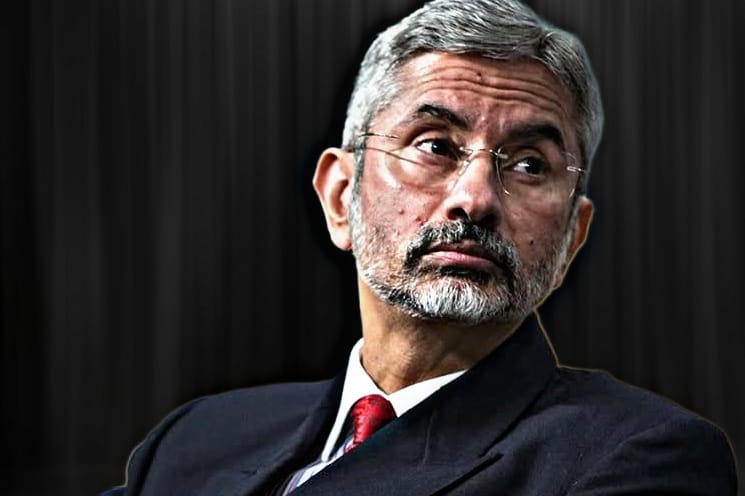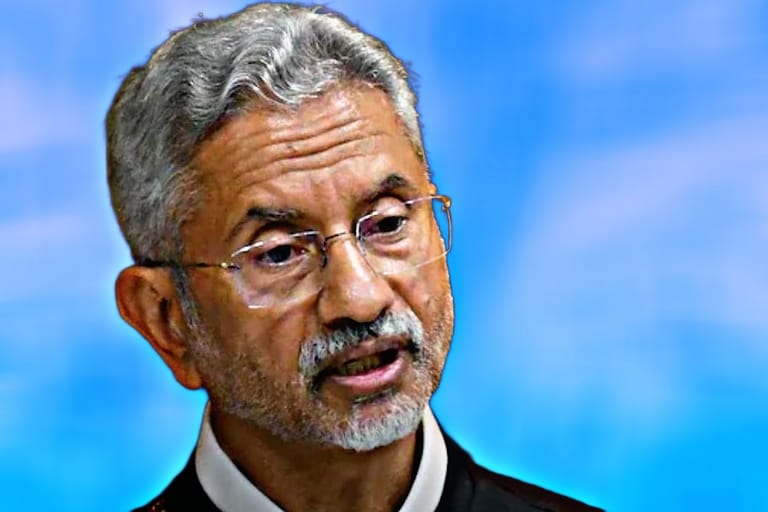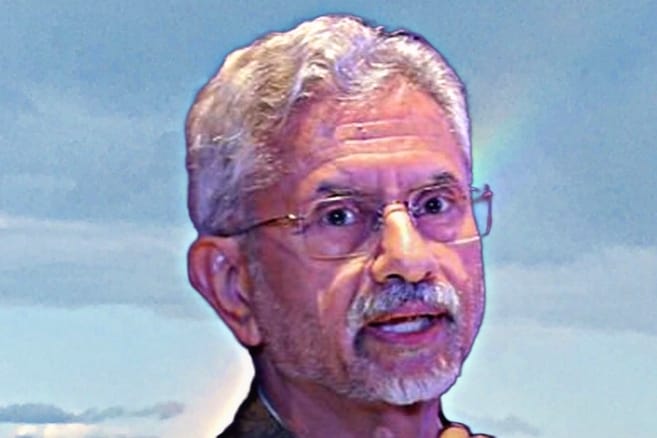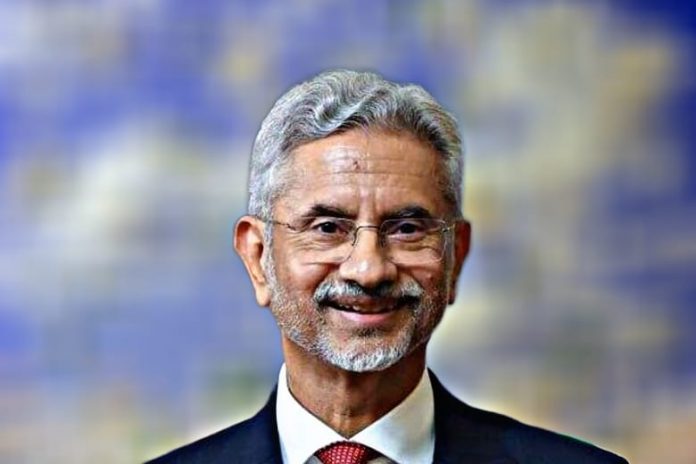Subrahmanyam Jaishankar, often referred to as S. Jaishankar, is one of India’s most influential and experienced diplomats in contemporary history. As India’s current Minister of External Affairs, Jaishankar has played a pivotal role in shaping India’s foreign policy and international relations, helping India navigate an increasingly complex global landscape. His expertise in diplomacy, combined with his deep understanding of global geopolitics, has earned him respect both in India and abroad.
In this article, we will explore the life, career, and political impact of S. Jaishankar, detailing his journey from a career diplomat to becoming India’s foreign minister. We will also delve into his approach to foreign policy, his role in key international negotiations, and his legacy in shaping India’s place on the world stage. Along the way, we will incorporate key SEO keywords to ensure visibility and search relevance.
Early Life and Education of S. Jaishankar
Subrahmanyam Jaishankar was born on January 9, 1955, in New Delhi, India. His family has a rich history in India’s foreign service and civil administration. Jaishankar’s father, K. Subrahmanyam, was a prominent Indian strategic analyst and defense expert, often regarded as one of India’s most respected security experts. Growing up in an environment steeped in discussions of national security, foreign policy, and global affairs, Jaishankar was naturally inclined toward international relations.
S. Jaishankar attended St. Stephen’s College in Delhi University, where he earned his undergraduate degree in Economics. He then pursued a master’s degree in Political Science from Jawaharlal Nehru University (JNU), one of India’s most prestigious institutions known for its focus on international relations and diplomacy. S. Jaishankar furthered his education at the School of International and Public Affairs (SIPA) at Columbia University in New York, where he completed a post-graduate degree in International Relations.
A Career Built on Diplomacy

S. Jaishankar’s career in diplomacy began in 1977 when he joined the Indian Foreign Service (IFS). Over the years, he rose through the ranks, serving in various capacities in Indian embassies around the world, including in countries such as the United States, China, and Sri Lanka. His early assignments were critical in shaping his understanding of global geopolitics and diplomacy.
S. Jaishankar Role in India’s Relationship with the United States
One of the defining moments of S. Jaishankar diplomatic career came in the 1990s, when he was posted to the Indian Embassy in Washington, D.C., during a period of significant change in U.S.-India relations. He played an instrumental role in fostering closer ties between the two nations, which eventually culminated in the landmark 2008 India-U.S. nuclear deal. This agreement, which allowed India to access civilian nuclear technology despite not being a signatory to the Nuclear Non-Proliferation Treaty (NPT), was one of the most significant foreign policy victories for India in recent history.
S. Jaishankar expertise in managing U.S.-India relations helped him build strong personal and professional relationships with American policymakers, particularly in the areas of defense, trade, and technology. His time in Washington gave him invaluable insight into U.S. political and diplomatic strategies, which would prove useful in his future career as India’s Foreign Minister.
S. Jaishankar Role in Strengthening India-China Relations
S. Jaishankar also served as India’s Ambassador to China from 2009 to 2013, a period marked by growing tensions in Sino-Indian relations. His tenure was crucial in managing these tensions and maintaining a constructive dialogue between the two largest Asian economies. S. Jaishankar deep knowledge of China, its policies, and its foreign relations allowed him to navigate the complexities of the bilateral relationship. During his time in Beijing, he worked on several high-level dialogues and trade negotiations, strengthening economic and cultural ties.
His expertise in managing the delicate Sino-Indian relationship was critical, especially as China became more assertive on the global stage. Jaishankar’s pragmatic approach to diplomacy—balancing cooperation with China on issues such as trade while managing contentious issues like the border dispute—has been a hallmark of his career.
India Foreign Minister: A Strategic Vision for Global Diplomacy

In May 2019, S. Jaishankar was appointed as India’s Minister of External Affairs in the government of Prime Minister Narendra Modi. Jaishankar’s appointment to this critical position was widely seen as a strategic move by Modi, who recognized Jaishankar’s deep experience and expertise in international relations.
S. Jaishankar’s Approach to India’s Foreign Policy
As Foreign Minister, S. Jaishankar approach to diplomacy has been characterized by a balance of continuity and change. His diplomatic style is marked by pragmatism, assertiveness, and a deep commitment to India’s national interests. He has been at the forefront of articulating India’s foreign policy priorities, particularly in the context of shifting global power dynamics.
1. Strengthening Relations with Major Powers
One of S. Jaishankar key priorities has been to strengthen India’s relationships with major powers like the United States, Russia, Japan, and the European Union. S. Jaishankar has maintained a strong partnership with the United States, focusing on strategic cooperation in defense, trade, technology, and counterterrorism. Under his leadership, India has deepened its participation in the Quad (Quadrilateral Security Dialogue) with the U.S., Japan, and Australia, aimed at ensuring a free and open Indo-Pacific region.
At the same time, S. Jaishankar has continued to maintain a strong partnership with Russia, particularly in defense and energy cooperation. His deep understanding of international relations has helped India maintain strategic flexibility, balancing its relationships with both Western and Eastern powers.
2. India’s Engagement in the Indo-Pacific Region
S. Jaishankar has been an advocate of India’s role as a key player in the Indo-Pacific region. Under his leadership, India has actively promoted the idea of a “Free and Open Indo-Pacific,” positioning itself as a counterbalance to China’s growing influence in the region. This has involved strengthening security partnerships with countries like Japan and Australia, as well as enhancing India’s presence in regional multilateral forums such as the East Asia Summit and the ASEAN Regional Forum.
3. Advocacy for Multilateralism
As a seasoned diplomat, S. Jaishankar has been a strong proponent of multilateralism and the importance of global institutions in addressing transnational issues. India’s growing stature on the world stage has coincided with its increasing participation in international organizations such as the United Nations, the World Trade Organization, and the BRICS (Brazil, Russia, India, China, South Africa) group.
S. Jaishankar has also been vocal about the need for reforms in the United Nations Security Council (UNSC), advocating for India’s permanent membership in the body. He has consistently argued that India’s growing global influence should be reflected in its representation in key global decision-making platforms.
4. Navigating Relations with Neighbors
S. Jaishankar has placed significant emphasis on strengthening India’s relations with its neighbors. In South Asia, his efforts have focused on improving ties with countries like Bangladesh, Nepal, Bhutan, and Sri Lanka, while also addressing the challenges posed by Pakistan and China.
S. Jaishankar government has worked to improve regional connectivity and economic cooperation through initiatives such as the South Asian Association for Regional Cooperation (SAARC), as well as bilateral trade agreements and infrastructure projects. While relations with Pakistan remain contentious, S. Jaishankar diplomacy has sought to safeguard India’s interests while maintaining regional stability.
Key Achievements as India’s Foreign Minister

S. Jaishankar’s tenure as the Foreign Minister of India has been marked by several significant achievements that reflect his diplomatic prowess and vision.
1. Successful Handling of the Galwan Valley Crisis (2020)
One of the most defining moments in S. Jaishankar diplomatic career came in 2020, during the intense border clash between Indian and Chinese forces in the Galwan Valley in Ladakh. Jaishankar played a key role in managing the crisis through high-level talks with Chinese officials. His strategic approach ensured that India’s interests were protected without escalating the situation into a full-scale conflict.
2. India’s Response to the COVID-19 Pandemic
In response to the global COVID-19 crisis, S. Jaishankar took the lead in ensuring that India contributed to global efforts to combat the pandemic. India’s role as a major producer of vaccines became crucial during this period, and S. Jaishankar facilitated vaccine diplomacy by providing millions of doses to countries around the world, strengthening India’s position as a global health leader.
3. Strengthening Relations with the United States and the Quad
S. Jaishankar tenure has seen India’s strategic partnership with the United States and other Quad nations reach new heights. The Quad, in particular, has become a cornerstone of India’s foreign policy, with S. Jaishankar playing a key role in shaping its agenda, which focuses on a range of issues from regional security to trade and technological cooperation.
4. Advocating for Global Reform and Sustainability
S. Jaishankar has also been a vocal advocate for global reforms, particularly in institutions such as the United Nations and the World Trade Organization. He has emphasized India’s commitment to addressing climate change, promoting sustainable development, and advocating for a fairer international order that reflects the interests of emerging economies.
Conclusion: Legacy and Future Outlook
S. Jaishankar has firmly established himself as one of the most skilled and respected diplomats in India’s history. Through his tenure as Foreign Minister, Jaishankar has significantly enhanced India’s global standing, articulated a clear vision for India’s role in the world, and navigated some of the most complex geopolitical challenges of our time.
S. Jaishankar legacy will likely be defined by his strategic approach to diplomacy, his ability to balance competing interests, and his unwavering commitment to India’s national interests. As India continues to rise as a global power, S. Jaishankar leadership in shaping its foreign policy will remain an essential part of the country’s trajectory on the world stage.
Whether it’s strengthening relationships with key global powers, navigating complex regional dynamics, or championing multilateralism, S. Jaishankar has proven himself to be a key architect of India’s modern foreign policy. His work will continue to influence India’s diplomatic direction for years to come.

